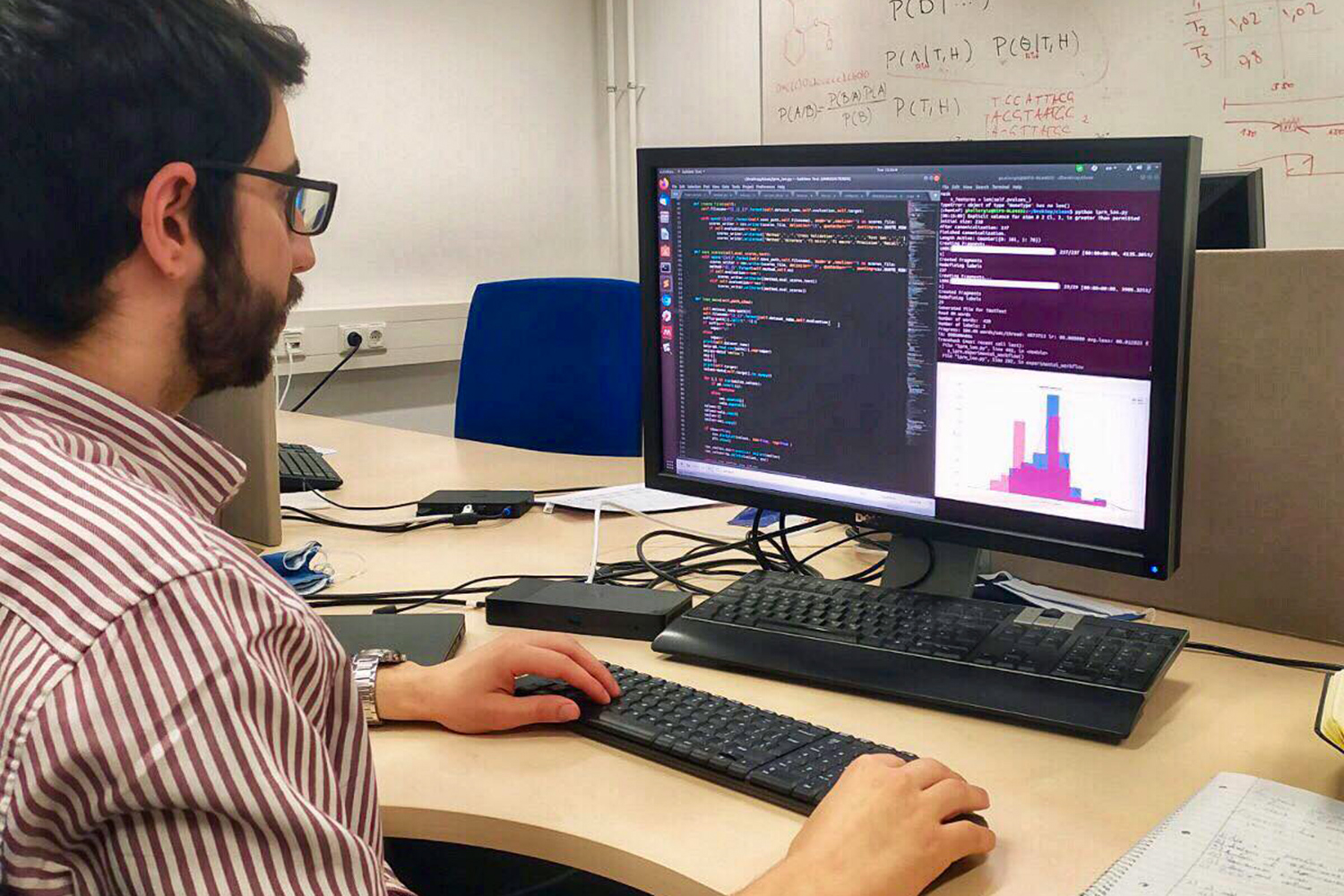How Machine Learning can help in the development of new drugs A short portrait of Georgios Kallergis from the PhD programme "Drug Discovery and Chemical Informatics for New Anti-Infectives"
How can machine learning be used in drug discovery and drug research? This is what Georgios Kallergis is working on. He is researching in the doctoral programme “Drug Discovery and Chemical Informatics for New Anti-Infectives” of the Technische Universität Braunschweig in cooperation with the Helmholtz Centre for Infection Research (HZI) and the Ostfalia University of Applied Sciences. He is supervised by bioinformatician Alice McHardy, who is a joint professor at TU Braunschweig and HZI. We present a short portrait of Kallergis and his research.

Giorgos Kallergis is a PhD student in the iCA doctoral programme. Photo credit: Giorgos Kallergis
Who are you and what is your research topic?
My name is Kallergis Georgios and I am from Greece, where I studied Electrical and Computer Engineering. I am particularly interested in Machine Learning and how it is applied to drug discovery. Currently, I am working as a PhD student in the Department of Computational Biology of Infection Research at the Helmholtz Centre for Infection Research under the supervision of Professor Alice McHardy. I am also part of the PhD programme “Drug Discovery and Chemical Informatics for New Anti-Infectives”.
Which research question are you working on?
To answer this, I would first like to briefly explain what inhibitors are. Inhibitors are substances that influence reactions in such a way that they are slowed down, inhibited or prevented. The main goal of my project is to optimize inhibitors for the enzyme DXS from the methylerythritol phosphate (MEP) pathway which is present in Gram-negative bacteria but not in humans. In this way, we will be able to develop new drugs that tackle those bacteria.
To achieve this, I am working on a computational approach that deploys Machine and Deep Learning algorithms to identify physicochemical properties and feature groups with high inhibitor activity. This knowledge can be used to both predict the levels of inhibition and propose new inhibitor structures.
What makes this topic special to you?
Drug discovery is a very challenging procedure that requires substantial resources – more than 10 years and a lot of money are needed to develop a drug. The importance of drugs is highlighted during the ongoing coronavirus pandemic. Artificial Intelligence algorithms and techniques can make a valuable contribution to decreasing the necessary time, the failure rate, and the cost and thus, help to provide people with the necessary drugs.
Apart from the joy of playing a part of this process, it is very exciting to work in an interdisciplinary area like this and what is more, utilize state of the art techniques that push the limits of our current knowledge.

The iCA doctoral students are researching new drugs for the treatment of bacterial and parasitic infectious diseases. Giorgos Kallergis uses machine learning for this. Photo credit: Giorgos Kallergis/HZI
Why is your topic relevant to pharmaceutical research?
My project is carried out in collaboration with Professor Hirsch from the Helmholtz Institute for Pharmaceutical Research Saarland (HIPS) who is Head of Department Drug Design and Optimization. Her group’s knowledge and experience enable us to develop computational models that deal with significant problems in this scientific field as well as to apply and evaluate them in real, experimental data. Hence, we can create effective tools that boost pharmaceutical research.
What is special about participating in the Ph.D. program “Drug Discovery and Cheminformatics for New Anti-Infectives (iCA)”?
It is very exciting to participate in this program as it consists of people that form a multicultural environment and come from different scientific fields. The variety of the individual points of view brings us closer to our common goal, to facilitate the discovery of new antiinfectives and also broadens our horizons, and fosters collaborations among the participating labs. Moreover, we have the opportunity to attend talks from experts who share their insights about the field with us.
